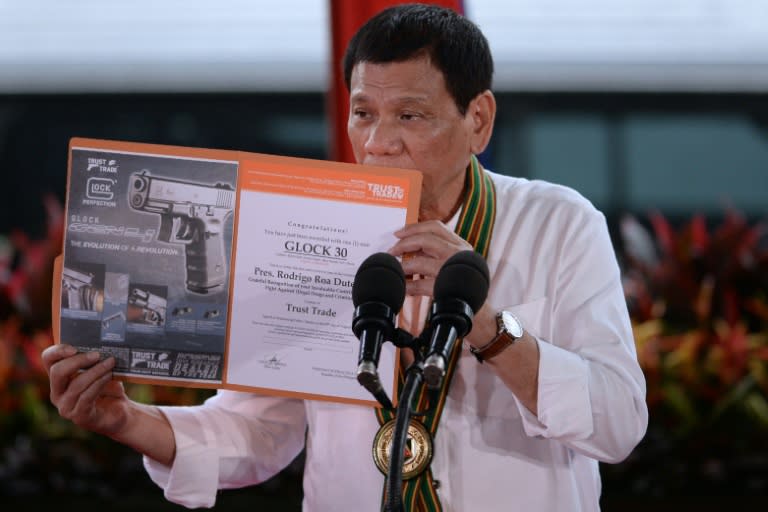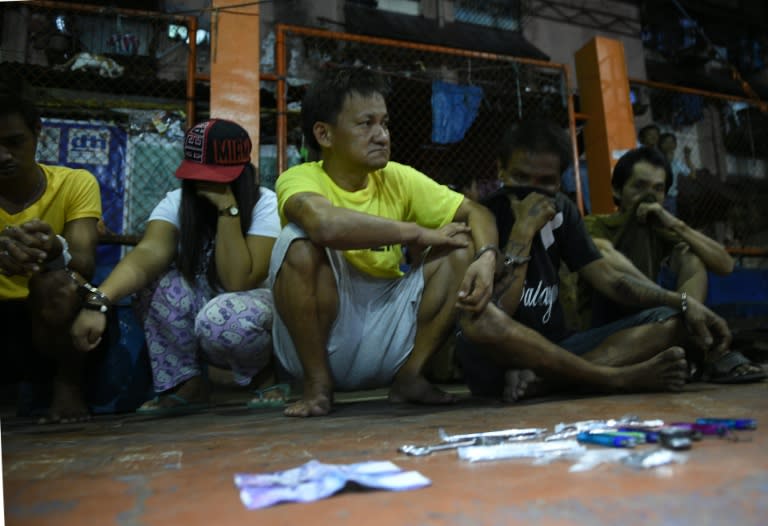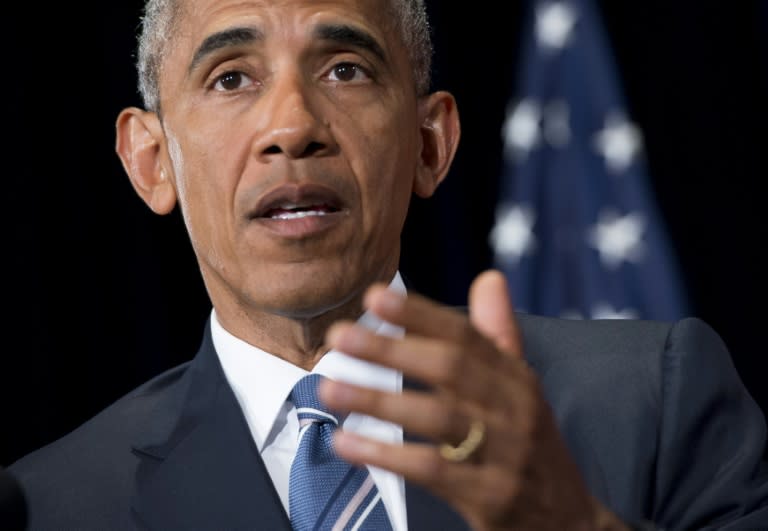Philippines' Duterte defiant as poll shows popularity soaring
Philippine President Rodrigo Duterte told all his critics to "go to hell" on Thursday as he renewed his threats to kill, after a poll showed Filipinos overwhelmingly endorsed his deadly war on crime. Duterte's unprecedented crime crackdown has raised fears of mass extrajudicial killings with more than 3,000 people killed since he took office on June 30, prompting global condemnation led by the United States, the United Nations and the European Union. However 76 percent of Filipinos are "satisfied" with Duterte's performance, according to a poll by Social Weather Stations released on Thursday. Just 11 percent of people surveyed said they were "dissatisfied" and the rest were undecided. "I would like to just give an advice to all the human rights (critics) shouting now, local or international, I said you can all go to hell for it is never wrong for a president and the police and the military to protect its citizens," Duterte said. Duterte was speaking at ceremony where he announced rewards of up to $5,100 each for "best performing" police officers in his crime crackdown, which is officially called "Double Barrel". The Social Weather Stations survey signalled a huge jump in support from the May elections, which Duterte won in what was considered a landslide but still with just 37.6 percent of the votes. In the Philippines, the presidential election is decided simply by whoever gets the most votes, and his nearest rival secured 22.6 percent. - Near-record popularity - Only one other president has enjoyed higher popularity ratings three months into their presidency since democracy was restored in 1986 following the fall of dictator Ferdinand Marcos. That president was Fidel Ramos, who ruled from 1992-1998 and is now one of Duterte's chief allies. Under the constitution that was re-written post-Marcos, presidents are only allowed to serve a single term of six years. Duterte, a provincial politician, stormed to victory largely on his pledge to eradicate crime in six months. He promised that tens of thousands of people would be killed in his crime crackdown, and that he would pardon himself and police if they were charged with mass murder. Since taking office on June 30, Duterte has continued his threats and incitements to kill, while unleashing abusive tirades at his critics. Last week he said he would be "happy to slaughter" three million drug addicts, as he likened his crime war to Nazi leader Adolf Hitler's efforts to exterminate Jews. Following an international outcry, Duterte apologised to Jewish people for his Hitler reference but insisted he was "emphatic" in his desire to kill all drug addicts. Duterte insisted on Thursday that threatening to kill people did not break any laws. "There is no crime at all when I say do not destroy the youth of this land because I will kill you," he said. Duterte also repeated that police were killing only in self-defence. He has previously said many of the other unexplained deaths are a result of gang violence, and are not by state-sponsored death squads as alleged by some rights groups. - Anti-US rage - Duterte has rejected international criticism by calling US President Barack Obama a "son of a whore" and telling him to "go to hell", sticking his finger up to the European Union and branding UN chief Ban Ki-moon a "fool". Duterte has also threatened to break the Philippines' decades-old alliance with the United States, its former colonial ruler, because of Washington's criticism over the crime war. Obama has urged Duterte to respect the rule of law and fight crime "the right way". While abusing Obama, he has complained about a lack of respect from his US counterpart and said he now wants to forge much closer ties with China and Russia. His foreign secretary, Perfecto Yasay, maintained the rage on Thursday with the release of a lengthy statement headlined: "America has failed us". "The United States held on to invisible chains that reined us in towards dependency and submission as little brown brothers not capable of true independence and freedom," Yasay said.





